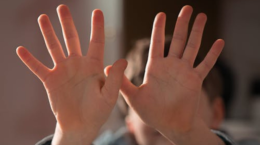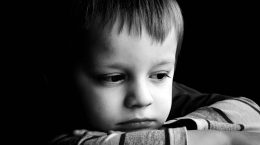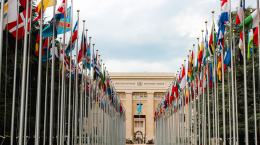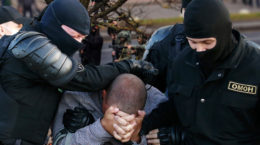“Our House” sent a statement about the violation of human rights to the UN Security Council, as well as to several other international organizations: to the Office of the High Commissioner for Human Rights Michelle Bachelet, Special Rapporteur on Human Rights in Belarus Anais Marin, Special Rapporteur on Belarus in PACE Emanuelis Zingeris, Special Rapporteur for Belarus in the European Parliament Petras Auštrevičius, also UN Special Rapporteur on Children’s Rights and UN Special Rapporteur on Women’s Rights.
You can read the full text of the statement below.
Statement of the International Centre for Civil Initiatives “Our House”
The most relevant issues regarding the rights of vulnerable groups – women and children – relating to political, economic and social rights and as well as rule of law and judicial and penitentiary systems.
- Women’s rights.
1.1. Banned jobs for women
In Belarus in the Labor code still has provisions banning women from certain number of jobs that are recognized as heavy and dangerous for women’s reproduction health (art. 262 LC). The list of forbidden jobs for women is defined by Ministry of Labor and Social Protection and contains more than 180 professions.
1.2. Invisible pressure for women protestors.
1.2.1. Invisible number of repressed women in Belarus.
During and after the elections-2020, women played a significant role in the protests and women have been brutally suppressed by different state bodies in many different ways. Of those repressed women who came under administrative prosecution, women served 16,321 days in administrative cases. In administrative cases, women paid 641,112.45 euros (of those known to human rights defenders) as fines. Most of the women were brought to administrative responsibility several times. The number of women were involved in criminal proceedings is 346 persons, of whom in custody – 129 women (convicted – 54 women; awaiting trial decision – 75 women), home detention – 4 women, settlement colony – 19 women, forced emplacement – 3 women and etc.
1.2.2. Torture and inhuman treatment of women in a pre-trial detention center and in prisons.
- Forced labor / very low–paid hard work. Women work in a sewing factory, knitting washcloths, cutting threads. Labor legislation does not affect them – only criminal enforcement. And even the minimum payment for the work is not received by prisoners. They are not paid part-time or idle time of the enterprise, like ordinary employees. As a result, they receive little money for their work (0-15 euro per month), remaining after deductions for food and utilities, fines, for example, for an unbroken loop on the collar.
- Inhuman detention conditions for women prisoners. KGB and police are beating the testimony of female political prisoners. The women are forced to videotape humiliating “repentances” where they apologize to Alexander Lukashenko for their activism and participation in the protests. It is obvious that the women were severely tortured before this. Psychological pressure and threats of sexual violence are often applied against detained women, including using for such purposes women who have mental disabilities.
- Failure to provide medical care and lack of hygiene items. The administration of detention center, pre-trial detention centers and colonies is much more likely to apply unbearable living conditions against women rather than men. Women political prisoners deprive them of their medication and do not allow doctors into their cells. Menstruation is not an exception – Belarusian women complain that the administration of places of detention hardly gives out even hygiene products, not to mention painkillers. Women prisoners are not only deprived of provision with sanitary pad packets, but also very often blocked from the possibility of getting sanitary pad packets from outside of the prison, they also do not have an opportunity to take a shower.
1.3. Imprisonment in a psychiatric hospital.
This measure has been applied to women prisoners since the early 2000s. It continues to this day. Activists are forcibly hidden in the wards of psycho-neurological dispensaries, allegedly for expertise and examinations. In fact, they are fed pills, injections of drugs, do not give letters and do not allow them to see their loved ones.
1.4. Deportation and forced emplacement.
Several foreign women were immediately expelled from the country after the protests and lost their homes. There is also evidence of the forced deportation of female activists from the Polish ethnic minority, who have been forcibly deported to the border with Poland.
- Children rights
2.1. The rights of children-migrants
Unaccompanied and separated children as well as children-migrants with families face serious violations of their rights, including immigration detention, separation with families and arbitrary removals. Return of children among states-members of Commonwealth of Independent States (CIS) are regulated by the outdated Agreement on the Cooperation of Member States of the CIS on the Return of Minors to their State of Residence 2002, (the Chisinau Agreement). In accordance with the Agreement children-migrants found in the territory of one state are being sent to detention centers and returned to their country of origin to similar detention center. These norms result in persisting violations of child rights, including prolonged immigration detention, lack of education and family environment.
2.2. The rights of children in conflict with the law (penitential system)
In Belarus children as young as 14 bear criminal responsibility if they commit crimes as illicit drug trafficking, and the provisions of article 328 of the Criminal Code apply to them as they would to adults, meaning that a teenager can potentially be sentenced to up to 15 years of jail for drug trafficking, irrespective of the quantity of the drugs trafficked.
- State-organised child slavery. All of the incarcerated minors must work, but the working conditions do not take into account their young age, physical condition, or the fact that in the case of minors a criminal sentence should serve the purpose of facilitating their integration back into society after their release. Their wage is extremely low (from zero to 2.5 euro per month), meaning that families have to provide them with food, clothing and basic hygiene products that their children could not purchase with the money they earned.
- Cruel or inhuman treatment. Having been singled out as “repeat violators”, the juveniles are the target of abuse and mistreatment in prison. A petty wrongdoing at work is used as a justification for cruel sanctioning by the penitentiary administration, such as several days or weeks in solitary confinement cell. The cancellation of family’s visiting rights is another frequent sanction for any alleged misbehaviour of the convicts. The cancellation of family’s visiting rights is another frequent sanction for any alleged misbehaviour of the convicts. Such sanctions are usually rendered without informing the families in due time, meaning that parents travel hundreds of kilometres, usually in public transport and carrying several bags of perishable goods to give their children, for nothing, as they cannot enter the prison and must return home without having a chance to meet their child.
- the police officers use a certain color system of “tags” (color patches or badges) for marking prisoners. The color which is assigned to a prisoner depends on what kind of torture and ill-treatment this person will be subjected to. Color discrimination and color stigmatization lead to the fact that prisoners are detained in unequal conditions compared to other prisoners – they are kept under increased scrutiny of the prison administration, and they have higher chances of receiving additional punishment (including placement in a “black hole” or a tiny punishment cell), being deprived of visits and parcels from relatives, as well as encountering difficulties in obtaining a conditional early sentence. This leads to discrimination against first of all the “children-328” – minors and young people convicted for the first time for petty crimes under the “drug” Article 328 of the Criminal Code of Belarus, who are marked in green and all prisoners know that they are convicted under article 328. It’s an additional psychological pressure on those sentenced under art. 328. In prisons, a similar measure (but the colour of stripes is red) is applied to people prone to escape or suicide. Political prisoners are labelled with the yellow stripes.
- Access to education: 75% of the convicted children reported problems with accessing basic secondary education, and nearly 45% of them simply did not receive basic education at all since they have been sent to detention centre.
- Discrimination of parents (in most cases, specifically: mothers, i.e., women). Being the relative of a serious crime offender is a heavy cross to carry in Belarus, especially for parents of minors convicted for drug trafficking. This has negative social consequences for them (ostracism), resulting in psychological distress for mothers (accused of breeding criminals), and financial problems for their whole families. For example, no insurance company agrees to provide health insurance for convicted children. So, parents have to pay all the health-related expenses of their children in custody. This extends also to the numerous blood and urine analyses ordered by the Court or the Department of Sentence Enforcement, including long after the trial phase, as part of medical control against narcotic abuse: since their low wages do not allow inmates to pay for these analyses themselves, laboratory bills are sent to their parents. Yet no bank agrees to grant their parents a loan until all those medical bills have been paid for example.
- According to Decree 18, if there are other minors in the families of the convicted under 328, these minors are automatically registered as being in a “socially dangerous situation”. This means that the younger sisters and brothers of a convicted teenager can be removed from their families at any time. This is also an instrument for blackmailing and putting pressure on mothers (parents) if they are overly active in complaining and asking for help.
2.3. The rights of children participated in protests and children from protestors’ families.
In total, from August to December 2020, hundreds of minors and their parents were detained and brought to administrative and criminal liability.
As of September 11, 2020, the General Prosecutor’s Office of the Republic of Belarus announced the drawing up of protocols on an administrative violation to more than two hundred minors for participating in peaceful mass actions.
As of October 13, 2020, the General Prosecutor’s Office of Belarus issued official warnings to more than 300 families for the participation of children in protests. As of today, the number of such families is not known, but this figure can be doubled at least.
Prosecutors admitted that they held so called «explanatory talks» with more than 400 parents and children. Today, absolutely all families with children talk about threats to remove their children for participating in protests.
Prosecutors also admitted the facts of the removal of children from families after the participation in peaceful mass actions.
Regarding minors, police officers and other law enforcement agencies actively use torture, ill-treatment, and deny minors medical assistance, including in situations where it is urgently needed. Also, in relation to minors, representatives of state bodies massively violate the Convention on the Rights of the Child, ratified by Belarus on October 31, 1990, and Decree No. 18 of 2006.
Facts that we have:
– At least one child was seriously injured after being beaten by law enforcement officers after being detained.
– One child with epilepsy has been prosecuted and is in custody despite his medical diagnosis
– Four minors were harshly detained by the security forces during protest actions
– One child was detained for alleged cybercrimes
– Two children are suspected of a serious criminal offense committed during peaceful protests
– For the inscription on the asphalt of a twelve-year-old boy, an administrative protocol was drawn up on the parents, and their mobile phones were confiscated for examination
– In the kindergarten, the teacher locked a three-year-old child in the toilet for shouting the political slogan “Lukashenko – into the paddy wagon!”.
– A whole class of high school students was detained together with their teacher by the security forces without explanation when the children were returning from waltz lessons.
In general, one of the worst instances of child abuse in Belarus is the physical abuse (beating) that is perpetrated by an official on duty: a state servant, police officer, or school principal. In such instances, it is very difficult to bring to justice the adult who has committed violence because, as a rule, his crime is usually covered by other state structures. Moreover, when trying to punish him, parents face additional violence, threats, and repression. An official who beat a child often starts hounding against the child, the victim of violence.








